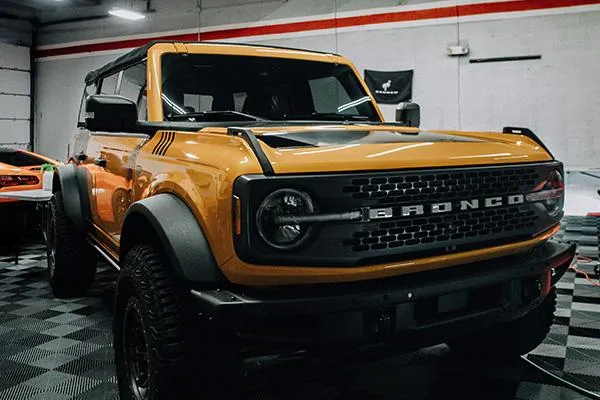
Types of Window Tint Films: Everything You Need to Know
Types of Window Tint Films: Everything You Need to Know
Hey there! So, you’re thinking about getting window tint for your car or home, huh? Smart move! Not only does it look sleek, but it also offers a ton of benefits like UV protection, privacy, and even energy savings. But with so many types of car tint and window tint films out there, how do you know which one’s right for you? Don’t worry, I’ve got you covered. Let’s break it all down in a way that’s easy to understand—no jargon, just real talk.
By the end of this blog, you’ll know exactly which type of window tint suits your needs. And hey, if you’ve got more questions, just hit us up at 437-770-9510 or drop by our shop at 12 Polstar Rd, Brampton. You can also email us at [email protected]—we’re always happy to help!
Why Window Tint is a Game-Changer
Before we dive into the types of window tint films, let’s talk about why you should even consider it. Whether it’s for your car or home, window tint is more than just a style statement. Here’s why:
UV Protection: Blocks up to 99% of harmful UV rays, protecting your skin and your car’s interior.
Heat Reduction: Keeps your car or home cooler, especially during those scorching summer months.
Privacy: Adds a layer of privacy so you can chill without worrying about prying eyes.
Glare Reduction: Say goodbye to annoying glare while driving or watching TV.
Energy Savings: Reduces the need for AC, saving you money on energy bills.
Convinced yet? Great! Now let’s get into the nitty-gritty of the different types of window tint films.

1. Dyed Window Tint
What It Is
Dyed window tint is one of the most common and affordable options out there. It’s made by layering dye between an adhesive and a protective top coating.
Pros
Affordable: Perfect if you’re on a budget.
Reduces Glare: Great for driving during sunny days.
Non-Reflective: Doesn’t have that shiny, mirror-like look.
Cons
Less Durable: Can fade over time due to sun exposure.
Limited Heat Reduction: Not the best at blocking heat compared to other types.
Best For
If you’re looking for a basic, budget-friendly option, dyed car tint is a solid choice. It’s also great for adding privacy without breaking the bank.
2. Metalized Window Tint
What It Is
Metalized window tint uses tiny metallic particles to reflect sunlight and heat. It’s more durable than dyed tint and offers better heat reduction.
Pros
Durable: Resists scratches and fading.
Heat Reduction: Reflects heat effectively, keeping your car or home cooler.
UV Protection: Blocks up to 99% of UV rays.
Cons
Reflective: Can have a shiny, mirror-like appearance.
Interference with Signals: May interfere with GPS, radio, or phone signals.
Best For
If you want something durable with excellent heat reduction, metalized window tint is a great option. Just keep in mind the potential signal interference.
3. Carbon Window Tint
What It Is
Carbon window tint is a step up from dyed and metalized options. It’s made with carbon particles, which give it a matte finish and superior performance.
Pros
Non-Reflective: No shiny, mirror-like look.
Heat Reduction: Blocks up to 40% of infrared light.
Fade-Resistant: Won’t fade over time, even with sun exposure.
Cons
Pricey: More expensive than dyed or metalized options.
Best For
If you’re looking for a high-quality, fade-resistant car tint that doesn’t interfere with signals, carbon tint is the way to go.

4. Ceramic Window Tint
What It Is
Ceramic window tint is the cream of the crop. It uses ceramic particles to block heat and UV rays without interfering with signals.
Pros
Superior Heat Reduction: Blocks up to 50% of infrared light.
UV Protection: Blocks 99% of harmful UV rays.
Non-Reflective: No shiny appearance.
No Signal Interference: Perfect for tech-savvy folks.
Cons
Expensive: The most expensive option on the market.
Best For
If you want the best of the best and don’t mind splurging, ceramic window tint is worth every penny.
5. Nano-Ceramic Window Tint
What It Is
Nano-ceramic window tint is a premium option that uses nanotechnology to provide maximum clarity, heat reduction, and UV protection. It’s the ultimate choice for performance and aesthetics.
Pros
Maximum Clarity: Almost invisible, so it doesn’t alter the look of your windows.
Heat Reduction: Blocks up to 50% of infrared light.
UV Protection: Blocks 99% of UV rays.
No Signal Interference: Works seamlessly with GPS, radio, and phone signals.
Cons
Pricey: One of the most expensive options.
Best For
If you want top-tier performance without compromising on clarity or aesthetics, nano-ceramic window tint is the way to go.
Available at Mr. Singh Customs
Common Shades of VLT Offered by Window Tint Companies
When choosing window tint, you’ll often hear the term VLT (Visible Light Transmission). This refers to the percentage of light that passes through the tint. Here are the most common VLT shades offered by window tint companies:
5% VLT (Limo Tint):
Appearance: Almost completely black.
Best For: Maximum privacy and glare reduction.
Note: Often restricted by local laws, so check regulations before choosing.
20% VLT:
Appearance: Dark but still allows some visibility.
Best For: A balance of privacy and visibility.
35% VLT:
Appearance: Medium darkness.
Best For: Reducing glare and heat while maintaining good visibility.
50% VLT:
Appearance: Light tint.
Best For: Subtle UV and heat protection without drastically changing the look of your windows.
70% VLT:
Appearance: Nearly clear.
Best For: UV protection and heat reduction while maintaining maximum visibility.
When choosing a VLT shade, consider your local laws, as many regions have restrictions on how dark your car tint can be.
Top Three Companies That Offer Window Film in North America
If you’re looking for high-quality window tint films, these three companies are industry leaders in North America:
3M:
Why They’re Great: Known for their innovative technology and wide range of products, 3M offers everything from dyed to nano-ceramic tints. Their films are durable, fade-resistant, and come with excellent warranties.
Popular Product: 3M Crystalline Series (nano-ceramic tint).
Website: 3M Window Films
Llumar:
Why They’re Great: Llumar is a trusted name in the industry, offering high-performance tints with excellent heat reduction and UV protection. Their films are also known for their clarity and longevity.
Popular Product: Llumar CTX Series (ceramic tint).
Website: Llumar Window Films
XPEL:
Why They’re Great: XPEL is a leader in both window films and paint protection films. Their window tints are known for their advanced technology, including self-healing properties and superior heat rejection.
Popular Product: XPEL PRIME XR Series (ceramic tint).
Website: XPEL Window Films
These companies are trusted by professionals and consumers alike, so you can’t go wrong with any of them.
How to Choose the Right Window Tint for You
Now that you know the different types of window tint films and common VLT shades, how do you choose the right one? Here are a few things to consider:
Budget: How much are you willing to spend?
Purpose: Are you looking for heat reduction, privacy, or UV protection?
Aesthetics: Do you want a reflective or non-reflective finish?
Durability: How long do you want the tint to last?
If you’re still unsure, don’t sweat it! We’re here to help. Just give us a call at 437-770-9510 or visit us at 12 Polstar Rd, Brampton. You can also email us at [email protected] for personalized advice.
FAQs About Window Tint
1. Is window tint legal?
Yes, but the legality depends on your location and the darkness of the tint. Check your local laws to make sure you’re compliant.
2. How long does window tint last?
It depends on the type of tint and how well it’s maintained. High-quality tints like ceramic or carbon can last up to 10 years or more.
3. Can I install window tint myself?
While DIY kits are available, professional installation ensures a flawless finish and avoids bubbles or peeling.
Key Takeaways
Dyed Tint: Affordable but less durable.
Metalized Tint: Durable and great for heat reduction but may interfere with signals.
Carbon Tint: Fade-resistant and non-reflective.
Ceramic Tint: Premium option with no signal interference.
Nano-Ceramic Tint: Maximum clarity with top-tier performance.
No matter which type of window tint you choose, you’re making a smart investment in comfort, privacy, and protection.
Ready to Get Started?
If you’re in the Brampton area and ready to upgrade your car or home with window tint, we’d love to help! Contact us at 437-770-9510, visit us at 12 Polstar Rd, Brampton, or email [email protected] for a free consultation. Let’s make your space cooler, safer, and more stylish!
